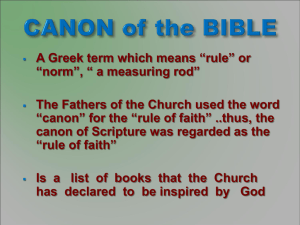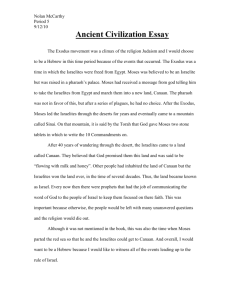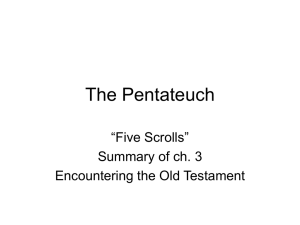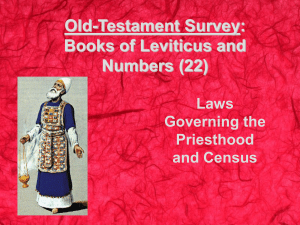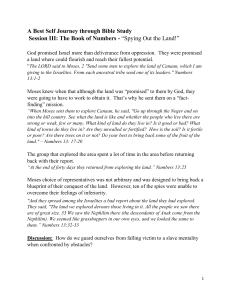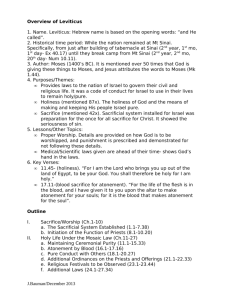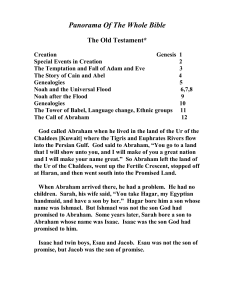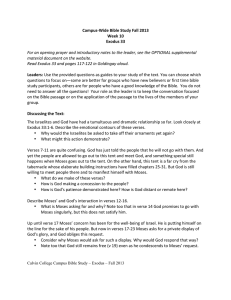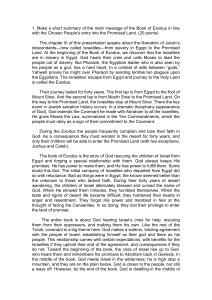Chapter 8 The Law
advertisement
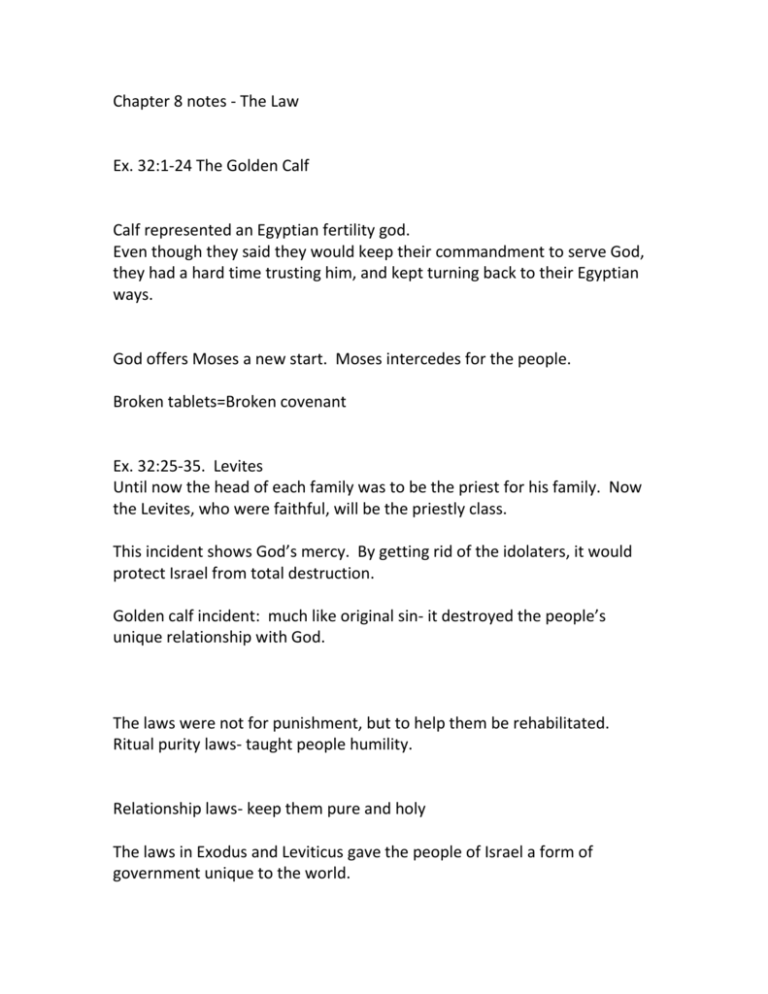
Chapter 8 notes - The Law Ex. 32:1-24 The Golden Calf Calf represented an Egyptian fertility god. Even though they said they would keep their commandment to serve God, they had a hard time trusting him, and kept turning back to their Egyptian ways. God offers Moses a new start. Moses intercedes for the people. Broken tablets=Broken covenant Ex. 32:25-35. Levites Until now the head of each family was to be the priest for his family. Now the Levites, who were faithful, will be the priestly class. This incident shows God’s mercy. By getting rid of the idolaters, it would protect Israel from total destruction. Golden calf incident: much like original sin- it destroyed the people’s unique relationship with God. The laws were not for punishment, but to help them be rehabilitated. Ritual purity laws- taught people humility. Relationship laws- keep them pure and holy The laws in Exodus and Leviticus gave the people of Israel a form of government unique to the world. *They would be ruled by God instead of kings. Ex. 40:34-38. In the Septuagint, the word used is “overshadowed” when it refers to God’s presence dwelling in the tabernacle. This is the same word that is used in the New Testament to describe how the Holy Spirit “overshadowed” Mary to show the presence of God in her. She is the NT Ark of the Covenant. Leviticus- Tribe of Levi. It is a manual for Priests. The purpose for this book is to teach Israel to be a Holy People. 1st 5 books of the Bible: 1)Genesis: In the Beginning, tells story of salvation history from Adam & Eve through Joseph. 2)Exodus: The Israelites’ escape (exodus) from slavery in Egypt 3)Leviticus: Mostly ritual laws for the Levitical priests. 4)Numbers: “In the wilderness” Contains a census of all the tribes of Israel. Tells about Israel’s 40 years “In the wilderness.” 5)Deuteronomy: “2nd Law” Moses summarizes the history of Israel’s wanderings in the wilderness The book after Leviticus is Numbers because it contains a census of all the tribes of Israel. The Chosen People are now just outside of the Promised Land. (The land of milk and honey) Numbers 13:17-24. What was the vegetation like? Do you think this is a good land? Numbers 13:25-33. Do the leaders think they can take the land? Why or why not? Remember, these people have been slaves for 400 years, not exactly training militarily. Do you think they should rely on their own abilities? Numbers 14:1-10. What was the people’s response when Joshua thought the Lord will bring them into the land? Numbers 14:11-38. What was God’s response to their lack of faith? Joshua and Caleb-2 spies who thought the Israelites should trust God and take over the Promised Land. Numbers 14:39-45. The Israelites are now forced to wander around in the desert for 40 years, one year for each day the spies were in the land. At Kadesh, they were grumbling about not having enough water. Numbers 20:6-12. Moses striking the rock. What did God instruct Moses to do? (v. 8) What was Moses’ punishment for not obeying God? Those who are in authority are held to higher standards. Numbers 21:4-9. The Bronze Serpent. Read John 3:14. (typology) Deuteronomy means Second Law. It contains a repletion, completion and explanation of the law given to Moses on Mt. Sinai. This law was a “lowering of the bar”. For example, divorce and wiping out of cities (the ban).
